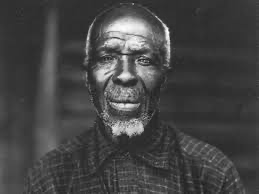Do You Know Anyone Named Clotilda?
Just before Juneteenth 2019, remnants of a ship were found along the Mobile River in Alabama. These remnants were confirmed as the last vestiges of an infamous schooner called Clotilda. Clotilda was the last known (because why would we ever believe that whiteness will record truth in history books) U.S. slave ship bringing captive Africans to the United States. What do we know about Clotilda? How should we carry our responsibility to remember the maafa (Transatlantic African Slave Trade)? Why does this matter to us as an afrofuturist learning organization?
The pier which Clotilda touched in the U.S. somewhere between fall 1859 and summer 1860 belonged to the Meaher family. Timothy Meaher was a wealthy slave trader, a career he began in his 20s. He became infamous for smuggling human “cargo” from modern-day Benin. Meaher continued with his efforts despite the U.S. Congress passing the Federal Act Prohibiting Importation of Slaves into the United States on March 2, 1807. Despite knowingly committing the criminal act, Meaher burned and sank the ship immediately after the voyage to cover his crime. These remnants were what was found along the Mobile River in 2019. For generations, there were descendants of passengers of the Clotilda that were unable to affirm what knowledge had been shared in their family. With the remnants now identified, there at the very least is an opportunity to correct the record and deepen our historical knowledge of the horrors of the slave trade in the U.S. Today in 2024, this site is a tourist attraction in Mobile, AL.
The 110 people who were on the Clotilda were divided into 3 groups and sold to separate plantation owners. Since these Africans would participate in slavery for less than five years prior to the Emancipation Proclomation, the memory of the ship, the voyage, the conversations, and all associated horrors were a part of these people’s lived experiences. 30 of those passengers founded Africatown in 1868. As of today, it is the only surviving community in America founded by Africans — these African people can speak directly and clearly about their ties to the continent and what their ancestors endured. Despite the treacherous journey that defines their relationship to the United States, many Black folks, myself included, would love to have this kind of direct tie to their ancestors. It’s an unfortunate circumstance that we mourn so deeply for connections to our histories that we can celebrate knowledge of a traumatic history as better than no knowledge of any personal history — which is the fate of so many of us Black folks living an American experience.
About 800 of these folk’s descendants still live in Alabama, on the land still called Africatown. To this day, they actively are fighting for their existence. In an uphill battle against environmental racism, the community is surrounded by chemical factories, some owned or established by the Meaher family. Cancer diagnoses are prevalent in this community. In the 1980s, Africatown’s thriving business district was seized and torn apart for a major road connecting highways to be built. Even with a rich history and remarkable tenacity of community, the antiBlack practice of displacement and dispossession continues in Africatown.
On average, the Clotilda passengers were between 15 and 30 years old when they were freed in 1865. Can you imagine being taken from your land, sold twice with no gains, enslaved for five years, then being thrown out by your enslavers after the Civil War ends? You find your people you got dropped off with and you try to go back to Africa, to find that you cannot make a way, then settle into an independent community and choose to live happily? Let us not forget that it is a local taboo and secret to discuss our capturing and my story? This is going well, a new normal is established after a few years, then the government and other local entities continue to smother you by way of chemical waste, eminent domain, silence and erasure?
Despite ties to this denial of human dignity, the Meaher family continues to benefit. Meaher-owned real estate and businesses have an estimated worth of over $30M. In 2021, the descendants of Timothy Meaher addressed the public directly in conversation with the descendants of one of the passengers, Cudjo Lewis. In that same year, the Meaher family sold a plot of land in Africatown to the state for below market rate. On this land, community development organizations and a food bank were to be built.
All of that, for a plot of land to be owned by the government to provide social services. While an honest act at attempting reconciliation, we cannot simply accept this “gift” as justice due. It’s a notion towards a better relationship at best and a symbolic gesture for continued self-gain at…least.
As an Afrofuturist learning organization, we know that learning about these stories is not simply knowledge for knowledge's sake. People want to claim that slavery was in the past, but it very much is defining our present and future in ways that are often silenced and denied public discourse.
We owe it ourselves, the families broken apart and ancestors gained due to the Clotilda’s voyage to remember these stories, share their active role in defining our lives and create a basis for imagining the future where these stories do not define Black communities existence and livelihoods.

